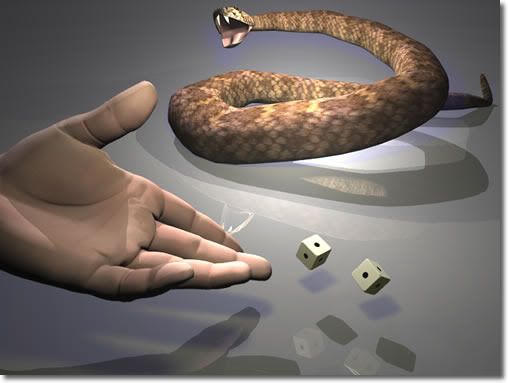Navigation
Install the app
How to install the app on iOS
Follow along with the video below to see how to install our site as a web app on your home screen.
Note: This feature may not be available in some browsers.
More options
Style variation

-

-

-

-

Desire to be a vessel of honor unto the Lord Jesus Christ?
Join Hidden in Him and For His Glory for discussions on how
https://christianforums.net/threads/become-a-vessel-of-honor-part-2.112306/
You are using an out of date browser. It may not display this or other websites correctly.
You should upgrade or use an alternative browser.
You should upgrade or use an alternative browser.
[_ Old Earth _] Is creatoin as infinite as the creator?
- Thread starter Pizzaguy
- Start date
Mike S
Member
- Mar 10, 2011
- 10,313
- 1,075
It seems as though the universe is about as infinite as God (who created it) is.
This is a very short video that makes the point (for me, anyway):
[video]http://all-that-is-interesting.com/important-image-captured-by-hubble[/video]
I'm pretty sure there aren't gradations of infinite.
- Jun 21, 2009
- 10,783
- 414
Frankly? No. Creation is not unlimited. There are boundaries set for man's perceptions. They are set for our illumination too. Consider fractal geometry, for example.
Follow with me along the path lead by a Professor who once read a book. She showed to many young students how various aspects of fractal geometry may be categorized including a concept of infinite regression. Consider a coast line and a map of said coastline, right? If we use our fat knuckles as a measuring stick where the length between the second and third joints of our pointer finger is reckoned a specific distance like a crude yardstick, we could crudely estimate by the move yer knuckly knuckle, ya knucklehead, method. We might then see by quick-n-crude calculation that the inlet of the Puget Sound, in my neck of the woods, Washington State, which measures out to me (I'm the volunteer knucklehead, as if you didn't know) as approximately accurate.
For those like me, a couple images may suffice to speak the 1,000 words or so necessary:
View attachment 3552
View attachment 3551
View attachment 3553
There are other, better images but for the purpose of illustration; these should suffice. That "knucklehead method" of mine works okay but as we zoom in closer and closer the distances get finer and finer and our measurement can be seen to become more and more precise.
Now continue the process and consider that our quick jaunt toward cartography is a lesson on fractals and "infinite regression" which is expressed as a primary characteristic.
Notice how we are going deeper and deeper and read along with the Fractal companion to the IDS course, 'Ethnomathmatics". This is still true to the course as presented. Soon, some guy named Sparrow will lift his hand in class and signal that he would like to comment, but for now, there is a period of listening and learning.
According to WIKI: "As mathematical equations, fractals are usually nowhere differentiable. An infinite fractal curve can be perceived of as winding through space differently from an ordinary line, still being a 1-dimensional line yet having a fractal dimension indicating it also resembles a surface.
This is an EthnoMATHmatics course, is it not? The instructor has not focused on the "hard sciences" of physics or math, but has remained focused on the study of man and of the interactions of various cultures and groups, one with another.
One more post to follow, where I say, "Huh? What's that you said?" in class and receive an amicable but evasive response from the professor who essentiall agreed (without my agreement) to disagree.
Me? I wanted solutions... but that's just me...
Follow with me along the path lead by a Professor who once read a book. She showed to many young students how various aspects of fractal geometry may be categorized including a concept of infinite regression. Consider a coast line and a map of said coastline, right? If we use our fat knuckles as a measuring stick where the length between the second and third joints of our pointer finger is reckoned a specific distance like a crude yardstick, we could crudely estimate by the move yer knuckly knuckle, ya knucklehead, method. We might then see by quick-n-crude calculation that the inlet of the Puget Sound, in my neck of the woods, Washington State, which measures out to me (I'm the volunteer knucklehead, as if you didn't know) as approximately accurate.
For those like me, a couple images may suffice to speak the 1,000 words or so necessary:
View attachment 3552
View attachment 3551
View attachment 3553
There are other, better images but for the purpose of illustration; these should suffice. That "knucklehead method" of mine works okay but as we zoom in closer and closer the distances get finer and finer and our measurement can be seen to become more and more precise.
Now continue the process and consider that our quick jaunt toward cartography is a lesson on fractals and "infinite regression" which is expressed as a primary characteristic.
Notice how we are going deeper and deeper and read along with the Fractal companion to the IDS course, 'Ethnomathmatics". This is still true to the course as presented. Soon, some guy named Sparrow will lift his hand in class and signal that he would like to comment, but for now, there is a period of listening and learning.
According to WIKI: "As mathematical equations, fractals are usually nowhere differentiable. An infinite fractal curve can be perceived of as winding through space differently from an ordinary line, still being a 1-dimensional line yet having a fractal dimension indicating it also resembles a surface.
This is an EthnoMATHmatics course, is it not? The instructor has not focused on the "hard sciences" of physics or math, but has remained focused on the study of man and of the interactions of various cultures and groups, one with another.
One more post to follow, where I say, "Huh? What's that you said?" in class and receive an amicable but evasive response from the professor who essentiall agreed (without my agreement) to disagree.
Me? I wanted solutions... but that's just me...
- Jun 21, 2009
- 10,783
- 414
By the time the professor's Powerpoint powered slide projected presentation was closing we had been treated to a look at a pile of sand. There too the process of mapping had narrowed down to counting the surface distances of each grain. Mind you, this is by memory that I rehearse and recant (oops, a slip o' the finger, meant to touch the recite key) the discussion but I do have copious notes that might be useful here too.

Some patience was called for here. The presentation is about to be opened up for questions. I don't want to pop my hand and should let others respond first.
After I was called upon, my query and question called for the teacher to ponder infinity for a moment with me.
"'Infinity is not a number,' or so says the Mathmatician. It is a concept, like the concept of Zero which is included as a number even if it represents nothing because as a space holder it is exceedingly useful. So there we conclude that math is not up for the task of measuring infinity now matter how it is expressed," I said matter-of-factly according to my customary style of delivery.
A pause as I took a breath to continue, "Consider recent and common knowledge found in Quantum Mechanics and thought experiments conducted there to help us define what is and is not quantifiable: A line, no matter the finite length, may be cut in half. And the line segment derived may then also be cut in half. As we approach smaller and smaller distances, another thought, that of of of Zeno's Paradoxes preserved by Aristotle (sometimes called "Achilles and the Tortoise") may be considered. While contemplating the nature of invisible things, he proposed a well known conundrum, of a man who was in a race but could never been seen (according to his logic) to be able to close the distance between him and the man in front of him.
Another pause, and we jump back toward the halving distance problem of quantum mechanics, after the professor has replied that she is familiar with the thought experiment I had in mind. Of course she is, she is highly educated, unlike me.
As we continue to cut the distance of the now shrinking line segment a question arises? How many cuts may a wise man cut, afore he may cut no more?
In other words, does our universe appear to have a limit to the size of a quantum? Can we determine the size of the smallest distance that can be cut in half no further while it still represents reality as we know it?
Turns out we can.
This unit is termed a Planc Length unit (and I trust you to kindly correct me if I am wrong). According to some, the smallest useful measurement is an Angstrom
One may refer to the subject of Quantum foam to follow the floatsum and jetsom of the current stream of thought but this is where I get off.
Seems there are boundaries set on limits to our perceptions. I'm okay with that.

Some patience was called for here. The presentation is about to be opened up for questions. I don't want to pop my hand and should let others respond first.
After I was called upon, my query and question called for the teacher to ponder infinity for a moment with me.
"'Infinity is not a number,' or so says the Mathmatician. It is a concept, like the concept of Zero which is included as a number even if it represents nothing because as a space holder it is exceedingly useful. So there we conclude that math is not up for the task of measuring infinity now matter how it is expressed," I said matter-of-factly according to my customary style of delivery.
A pause as I took a breath to continue, "Consider recent and common knowledge found in Quantum Mechanics and thought experiments conducted there to help us define what is and is not quantifiable: A line, no matter the finite length, may be cut in half. And the line segment derived may then also be cut in half. As we approach smaller and smaller distances, another thought, that of of of Zeno's Paradoxes preserved by Aristotle (sometimes called "Achilles and the Tortoise") may be considered. While contemplating the nature of invisible things, he proposed a well known conundrum, of a man who was in a race but could never been seen (according to his logic) to be able to close the distance between him and the man in front of him.
Another pause, and we jump back toward the halving distance problem of quantum mechanics, after the professor has replied that she is familiar with the thought experiment I had in mind. Of course she is, she is highly educated, unlike me.
As we continue to cut the distance of the now shrinking line segment a question arises? How many cuts may a wise man cut, afore he may cut no more?
In other words, does our universe appear to have a limit to the size of a quantum? Can we determine the size of the smallest distance that can be cut in half no further while it still represents reality as we know it?
Turns out we can.
This unit is termed a Planc Length unit (and I trust you to kindly correct me if I am wrong). According to some, the smallest useful measurement is an Angstrom
One Angstrom is 10 million times smaller than a millimeter. 1000 times smaller than a millimeter is a micron, which is the sort of scale used in manufacturing computer chips and is about as small as you can see with normal light microscopes.
There are measurements smaller than 1 Angstrom - 1 picometer is 100 times smaller, and 1 femtometer (also known as a fermi) is 100,000 times smaller, and is about the size of an atomic nucleus. But there are not any technolo- gies available to practically do anything on that kind of length scale, so the smallest useful scale is about an Angstrom.
http://www.newton.dep.anl.gov/newton/askasci/1995/math/MATH098.HTM
One may refer to the subject of Quantum foam to follow the floatsum and jetsom of the current stream of thought but this is where I get off.
Seems there are boundaries set on limits to our perceptions. I'm okay with that.
Last edited by a moderator:
Barbarian
Member
- Jun 5, 2003
- 33,356
- 2,560
There are mathematical ways of dealing with infinite regress. Picture something that happens in time so that the first step takes 1 second, the second 1/2 second, the third step 1/4 second,and so on, with infinite regression. You can show that it happens therefore in less than 2 seconds.
That sort of math was beyond Zeno and his fellows, as Douglas Hoffstader so comically demonstrated in Godel, Escher, Bach.
That sort of math was beyond Zeno and his fellows, as Douglas Hoffstader so comically demonstrated in Godel, Escher, Bach.
- Jun 21, 2009
- 10,783
- 414
Interesting that you mention time because time itself is bounded. Bounded at the extremes of velocity as well as the extremes of the force of gravity. What happens to time at the event horizon of a black hole? We are unsure, but our carefully constructed tables that are used for prediction become unreliable.
There are ways that mathematicians have developed that deal with the concept, but the question that I have advanced ties such things to reality, something that I believe, math supports. Notice how carefully the concept is described as, "As 'X' approaches..."




There are mathematical ways of dealing with infinite regress.
There are ways that mathematicians have developed that deal with the concept, but the question that I have advanced ties such things to reality, something that I believe, math supports. Notice how carefully the concept is described as, "As 'X' approaches..."




Last edited by a moderator:
- Jun 21, 2009
- 10,783
- 414
I know a couple guys who are involved in teaching math theory, am pretty sure you do too, but one of the guys that I know is a prayerful Christian and a friend. It might be interesting to listen to his response to a question like:
"Hey Doug! Would you mind sharing your thoughts with me about math and infinity as it relates to God and His creation?"
Would you mind sharing your thoughts with me about math and infinity as it relates to God and His creation?"
I could tell him to not dumb it down for me because I've got guys who will help me interpret it.
"Hey Doug!
 Would you mind sharing your thoughts with me about math and infinity as it relates to God and His creation?"
Would you mind sharing your thoughts with me about math and infinity as it relates to God and His creation?"I could tell him to not dumb it down for me because I've got guys who will help me interpret it.
Barbarian
Member
- Jun 5, 2003
- 33,356
- 2,560
There's two philosophies on this. One is that math and numbers are a purely human creation, a way we construct things to understand. The other is that math is an intrinsic part of nature, and is merely discovered by sufficiently intelligent humans.
I lean to the latter idea.
I lean to the latter idea.
Pizzaguy
Member
- Jan 19, 2011
- 2,907
- 6
- Thread starter
- #10
Yup, same here.There's two philosophies on this. One is that math and numbers are a purely human creation, a way we construct things to understand. The other is that math is an intrinsic part of nature, and is merely discovered by sufficiently intelligent humans.
I lean to the latter idea.
- Jun 21, 2009
- 10,783
- 414
The other is that math is an intrinsic part of nature, and is merely discovered by sufficiently intelligent humans.
Greetings Pizzaguy. Even though it was Barbarian who said it, you also agreed so the question about the origins of "the latter" and the concept that there is some intangible out there reminds me of the Allegory of Plato's Cave.
[video=metacafe;1921156/the_cave_an_adaptation_of_platos_allegory_in_clay/]http://www.metacafe.com/watch/1921156/the_cave_an_adaptation_of_platos_allegory_in_clay/[/video]
This was a common teaching, that there was some intangible concept "out there" where only the initiated could see. The responsibility to return and help others see the "shadows" and hear the "Sounds of the 'world outside the cave' rightly is demonstrated.
It also creates a divide, does it not? The enlightened spiritual (they had other titles) vs. the enslaved spirits of the cave dwellers.
But what does God say? Has he bound us so that we may not see, may not perceive beyond the 'evidences' so often cited herein? I think no, that the chains of the 'cave' are of our own creation and that Jesus came to set free those who have been bound.
Similar threads
- Replies
- 23
- Views
- 252
- Replies
- 2
- Views
- 331
[__ Science __ ]
Can Christians Be Theistic Evolutionist?
- Replies
- 3
- Views
- 181
- Replies
- 19
- Views
- 184